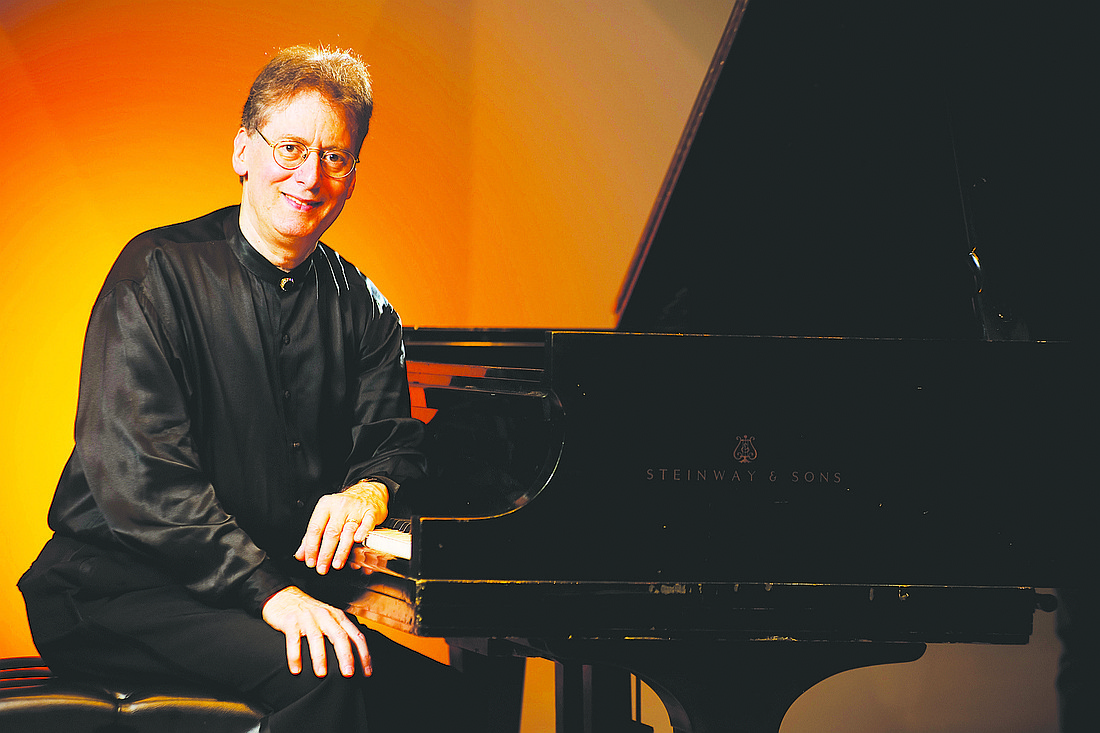- November 28, 2024
-
-
Loading

Loading

Driving home Friday, June 3, from the country’s No. 1 beach, top down on my convertible, Sirius satellite radio was playing Schubert’s “Trout” quintet in a knockout performance by the Takacs Quartet with pianist Andreas Haefliger and bassist Joseph Carver. That would make two “Trouts” in one day, because in the evening, we were going to the Sarasota Music Festival to hear the beloved piece, and all I could think was, “They’ll have to go some distance to match this recording.”
Pianist Robert Levin, violinist Timothy Lees, violist Kim Kashkashian, cellist Timothy Eddy and bassist Paul Ellison didn’t match it — they overtook it and made it into one of the most radiant, vigorous performances I’ve heard. This was a gourmet dish, filled deliciously with dynamic contrasts, tasteful colors and artfully crafted nuances.
It was the perfect end to a not-so-perfect evening. The andante from Brahms’ lush horn trio in E flat opened the program well with hornist Trevor Nuckols, a Juilliard student, violinist Brendan Shea, from Oberlin, and Indiana University pianist Mariko Sudo. This is not an easy opener, but these three students had the talent and sensitivity to pull it off with lovely tone and a stylish reading.
They were followed by flutist Christina Hughes (New England Conservatory), oboist Emily Tsai (Eastman), clarinetist Saerom Kim (Juilliard), bassoonist Sean Gordon (Oberlin) and horn player Maureen Young (Interlochen) in Barber’s “Summer Music,” an instrumental work somewhat similar to the composer’s earlier “Knoxville, Summer of 1915,” but more uplifting and stimulating with rhythmic punctuations pulsing through the melancholy like a children’s dance in the summer rain.
There was also an energetic, excellent performance of three movements from Prokofiev’s Quintet, Opus 39, by oboist Andreas Oeste (University of Central Arkansas), clarinetist Tianyu Zhang (Central Conservatory of Music), violinist Keir GoGwilt (Harvard), violist Aaron Mossburg (Oberlin) and bassist Emily Honeyman (Rice University). At times sounding like a plaintive aria by Menotti and at others reminiscent of Prokofiev’s own “Romeo and Juliet,” this is a terribly difficult work that the students took in their skillful stride.
As Festival Director Robert Levin said before the concert started, “These are our future luminaries. Hundreds of applicants from all over the world auditioned for fewer than 60 places.”
These kids have talent to burn with the intelligence and mastery to overtake many seasoned players. And that was made obvious when veteran musicians Susan Starr, Tom Robertello and Ronald Leonard performed Weber’s G minor piano trio. This is a teaching festival, one of the best in the country, so it’s possible these troupers spent more time coaching the kids than rehearsing the Weber. Then, there’s the problem with the piece itself. Written when the composer was ill, it has little of the exuberance and musicality we’ve come to associate with Weber. Still, this was a singularly uninspiring performance of a rather uninspired work. We’re sure these musicians are great mentors and their experience is inestimable to the students. But, if there’s to be an audience, it might be good to look inward, as well as to the future.